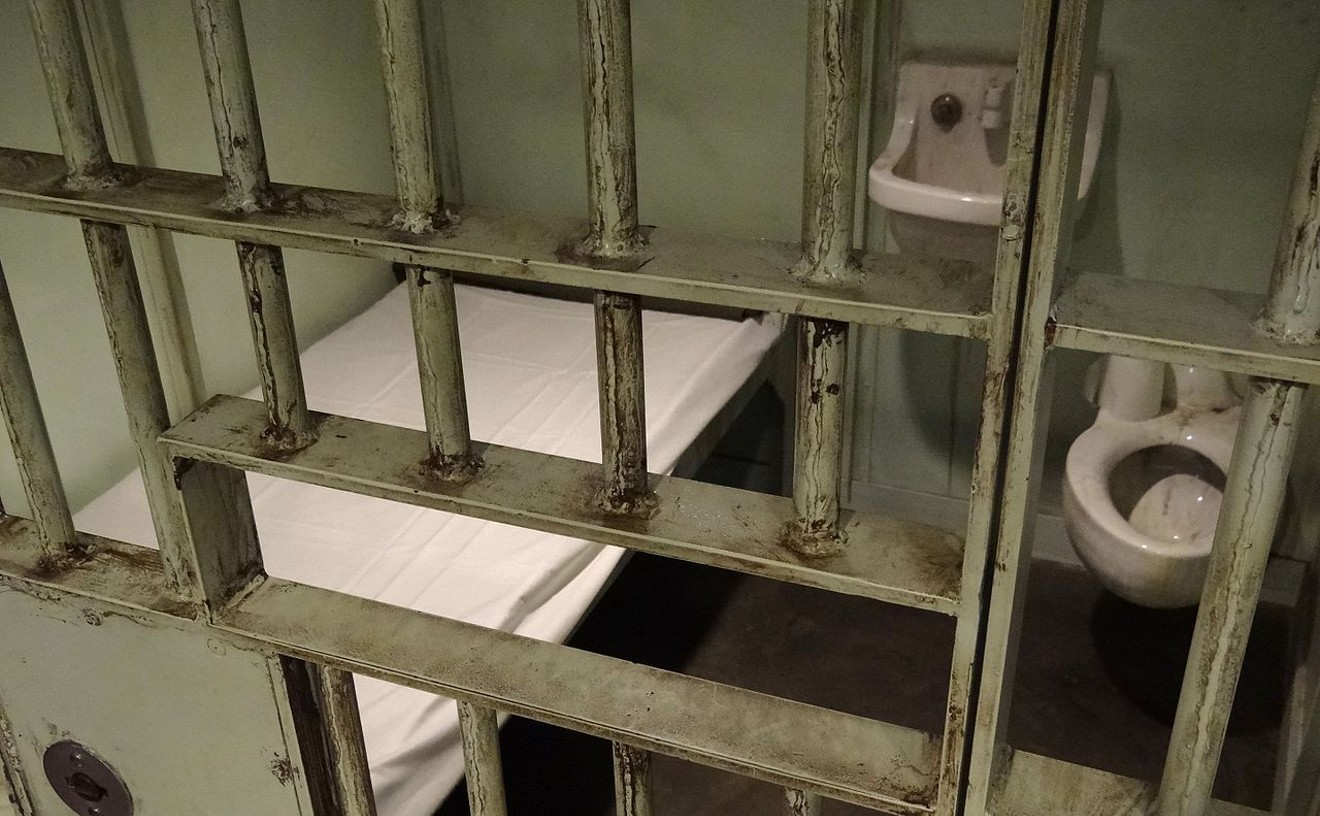Fernando and Fernando Immigration Consulting aims to help companies ensure their employees are in the country legally, as well as assist undocumented workers in pursuing residency if they're qualified.
"Employers are not trained to detect counterfeit documents," says Careaga, who did corporate immigration audits for INS. "The employer doesn't have a clue what to look for, and they don't have time, either."
As immigration enforcement has shifted from piecemeal fines to criminal prosecution, including cases against businesses that employ illegal workers, companies have complained about the difficulty of authenticating Social Security cards, licenses and immigration documents. While the law requires only that they collect the documents, not prove they're real, recent enforcement suggests that companies that knowingly or unknowingly employ workers with false or stolen documents may pay a price.
In a nationwide raid last April, agents arrested 1,187 workers and seven managers of Houston-based IFCO Systems North America. The managers were charged with conspiracy to harbor illegal immigrants and encourage illegal immigration. In December came the sweeping raids at Swift & Co. meatpacking plants, which with at least 2,282 arrests in six different states was the government's largest worksite-enforcement operation ever. Nearly 300 workers at the processing plant in Cactus, Texas, were arrested for assuming the identities of American citizens, and 53 of them were indicted last week on federal charges. Swift had participated in the federal Basic Pilot Employment Verification program, which allows employers direct access to Social Security data to confirm that employee names match the Social Security numbers provided. But the system doesn't detect identity theft, since the assumed information matches up. Swift also faces a lawsuit filed by a Dallas firm alleging the company hired illegal immigrants to depress wages.
Careaga is far from the first former immigration agent to start his own consulting business, says Carl Rusnok, a spokesman for Immigration and Customs Enforcement, but in light of the shrill debate over immigration and enforcement's growing focus on employers, it's likely a sign of what's to come.
"It's a growing business," Rusnok says. "Most businesses want to do the right thing, but they're not experienced in immigration, so if people can fill that need with their immigration expertise, they'll have a better opportunity to do the right thing."
Careaga and his son, Fernando Jr., a 32-year-old with a background in software sales and marketing, started the business five months ago. So far they've had mostly individual clients looking for help with paperwork to become residents or citizens or for assistance with petitions for family members. But eventually, Careaga intends to draw mostly on his experience auditing companies and investigating potentially fraudulent documents.
As a young man, Careaga had planned to become a lawyer in Mexico, but when his money ran out and he was unable to finish law school, he went to California to join his mother, who was an American citizen. He worked as a harvester and tractor driver in fields outside Fresno, then joined the Army and later worked as a sheriff's deputy in Chicago. He joined the Border Patrol in 1985 and was stationed in Laredo.
When he worked for the Border Patrol, Mexican relatives and friends called him names like vendido, which means sellout, or Malinchista, after Malinche, the Aztec woman who helped conquistador Hernan Cortes. It was difficult, he says, "but I had to support my family. In Chicago I lived in a poor neighborhood—I didn't want my kids to grow up in gangs. It's survival." Plus, he liked the job. One of the things he learned was "sign cutting," studying footprints to discern their freshness and whether the person who made them may have been carrying drugs. Three years later, he took a job as an investigator with INS in Los Angeles and later worked at agency offices in Dallas and Montana.
Most of the corporate audits he did involved immigrants who were using fake Social Security or green cards, or real ones that belonged to other people. After reviewing companies' I-9 (Employment Eligibility Verification) forms, which employers are required to fill out for each worker, he'd use a federal database to check the Social Security number. "Most of the ones that were fraudulent belonged to someone else," he says.
He no longer has access to the federal databases used to check the numbers, but he says that after so many years of inspecting the documents, he can prepare a list of "possible counterfeits" that employers can check through the Social Security administration. He also looks for signs of identity theft and false or outdated visas or green cards, which he says he can spot easily (the old green cards have wavy lines on the face, for example). Often, company employees are the ones supplying the fakes, he says, recalling an undercover INS investigation at a turkey plant that revealed that a personnel staffer was outfitting workers with counterfeits.
"That's very common," he says. "That's one reason employers get in trouble; that's one of the reasons the audits are helpful." The idea is that with his private audits, companies could avoid coming under the government's suspicion in the first place.
Meanwhile, detecting fakes has never been harder. "One of the problems is that these documents are getting closer and closer to the real thing," ICE's Rusnok says. "Now, with technology, you don't need 30 years of experience in false documents to make one that looks real."
When it comes to immigration, documents aren't the only things that often prove false. For years, so-called "immigration consultants" have popped up in the news after they were found to be swindling immigrants with empty promises and outrageous fees. State Attorney General Greg Abbott pushed to target such scams, shutting down some 25 statewide between 2002 and 2005.
That's a stigma Fernando and Fernando Consulting will attempt to combat, say father and son. Careaga has been aware of charlatan consultants and immigration lawyers his entire career, and he says the biggest red flag is when someone tells a client he can help them get citizenship without looking at the person's specific circumstances. For most people who have entered the country illegally, for example, the only way to get some sort of residency is to have a boss or relative petition on their behalf. But even then, the wait is long and usually they have to leave the country while they wait. The Careagas have already turned a number of people away because they don't have any recourse, they say.
"We won't take cases we can't work with," says Fernando Jr. "I'd rather turn them away than take their money knowing I can't help them."










